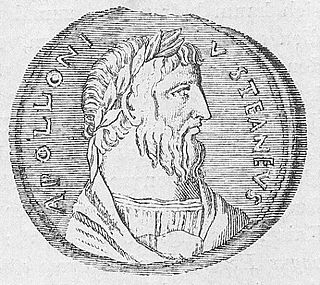A Quote by Niccolo Machiavelli
A prince must be prudent enough to know how to escape the bad reputation of those vices that would lose the state for him, and must protect himself from those that will not lose it for him, if this is possible; but if he cannot, he need not concern himself unduly if he ignores these less serious vices.
Related Quotes
If we would find God amid all the religious externals we must first determine to find Him, and then proceed in the way of simplicity. Now as always God discovers Himself to "babes" and hides Himself in thick darkness from the wise and the prudent. We must simplify our approach to Him. We must strip down to essentials (and they will be found to be blessedly few). We must put away all effort to impress, and come with the guileless candor of childhood. If we do this, without doubt God will quickly respond.
I thought, He must forebear to reveal His power and glory by presenting Himself as Himself, and must be present only in the ordinary miracle of the existence of His creatures. Those who wish to see Him must see Him in the poor, the hungry, the hurt, the wordless creatures, the groaning and travailing beautiful world.
A prince... must learn from the fox and the lion... One must be a fox in order to recognize traps, and a lion to frighten off wolves. Those who act simply as lions are stupid. So it follows that a prudent ruler cannot, and must not, honour his word when it places him at a disadvantage and when the reasons for which he made his promise no longer exist.
Often nothing keeps the pupil on the move but his faith in his teacher, whose mastery is now beginning to dawn on him .... How far the pupil will go is not the concern of the teacher and master. Hardly has he shown him the right way when he must let him go on alone. There is only one thing more he can do to help him endure his loneliness: he turns him away from himself, from the Master, by exhorting him to go further than he himself has done, and to "climb on the shoulders of his teacher."
How does one chip off the marble that doesn't belong? ... That comes about through five things: humility, reverence, inspiration, deep purpose, and joy. No great man has ever wise-cracked his way to greatness. Until one learns to lose one's self he cannot find himself. No one can multiply himself by himself. He must first divide himself and give himself to the service of all, thus placing himself within all others through acts of thoughtfulness and service.
Christ is to be answerable for all those that are given to Him, at the last day, and therefore we need not doubt but that He will certainly employ all the power of His Godhead to secure and save all those that He must be accountable for. Christ's charge and care of these that are given to Him, extends even to the very day of their resurrection, that He may not so much as lose their dust, but gather it together again, and raise it up in glory to be a proof of His fidelity; for, saith He, "I shall lose nothing, but raise it up again at the last day."
A man must fortify himself and understand that a wise man who yields to laziness or anger or passion or love of drink, or who commits any other action prompted by impulse and inopportune, will probably find his fault condoned; but if he stoops to greed, he will not be pardoned, but render himself odious as a combination of all vices at once.
It would be difficult, perhaps, to find the annals of a nation less stained with crimes than those of the Armenians, whose virtues have been those of peace, and their vices those of compulsion. But whatever may have been their destiny and it has been bitter whatever it may be in future, their country must ever be one of the most interesting on the globe.
It makes him contemptible to be considered fickle, frivolous, effeminate, mean-spirited, irresolute, from all of which a prince should guard himself as from a rock; and he should endeavour to show in his actions greatness, courage, gravity, and fortitude; and in his private dealings with his subjects let him show that his judgments are irrevocable, and maintain himself in such reputation that no one can hope either to deceive him or to get round him.


































